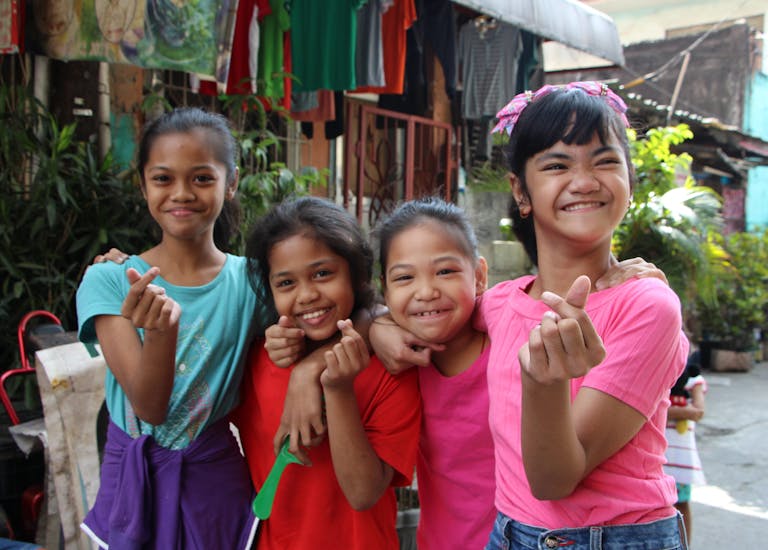Body Talk

Healthy sexual development for youth with disabilities
The Body Talk 2.0 project runs in the Philippines, Indonesia and Bangladesh and is implemented by NORFIL Foundation, NLR Indonesia and CDD, with support from Liliane Fonds. The project provides support to children and youth with a disability in their sexual development so they can enjoy their sexual and reproductive health and rights.
Topics around sexuality, sexual development and relationships are often not discussed with youth. The taboo is present in the home at school and in the wider community. Healthcare providers do not learn how to support youth in their sexual development and can’t accommodate their diverse needs or answer their questions. These challenges are larger for youth with a disability, as they often have to deal with stigmas around sexuality.

Body Talk 2.0 is a follow-up project of Body Talk 1.0 and My Body is Mine. Body Talk 1.0 ran from January 2022 until March 2025 in the Philippines, Vietnam, and Indonesia and was implemented by NLR Indonesia, Research Centre for Inclusion and NORFIL Foundation, with support of Rutgers and Liliane Fonds. My Body is Mine took place in Indonesia from 2018 until 2022 and was implemented by NLR Indonesia.
Equal rights
Sexuality as a natural part of life or an expression of love is often not recognized for people with disabilities. They have to deal with myths, such as that they cannot be good parents or spouses, do not have sexual wishes or desires and are not able to fall in love. As a result, people in their environment, consciously or unconsciously, deny them the essential right to sexual and reproductive health, while they can also play an empowering role. Body Talk supports youth with disabilities to understand their sexual and reproductive rights, to stand up for those rights and to make informed decisions on aspects concerning their SRHR. The project does not only target youth with disabilities themselves. Health care providers, teachers, parents, caregivers, community leaders and community based rehabilitation workers are also engaged to make sure the community plays their part.
Meaningful Youth Participation
All young people, also young people with disabilities, have the right to be engaged in decisions that affect their lives. However, young people are often not treated as equal partners and excluded from policy- or decision-making discussions. This is even more so for youth who are marginalised, for example those with disabilities. We believe that youth themselves know best what they need for their healthy development. That’s why meaningful youth participation is a strong component of Body Talk. In each of the countries, youth with disabilities are trained to become youth champions. Together, they form youth groups to advocate for their rights and for those of their peers.
Sexual- and Gender-based Violence
Receiving the right support after having experienced Sexual and Gender-based Violence (SGBV) is crucial. SGBV is an umbrella term for any harmful act that is perpetrated against a person’s will and is based on socially ascribed differences between genders. SGBV against children and youth with disabilities is amongst the most reported child protection incidents each year. The Body Talk project therefore partially focuses on supporting families, communities and service providers to respond safely to SGBV cases and ensure inclusive case management.
The Body Talk Toolkit
During Body Talk 1.0 many tools have been developed, such as the Body Talk dolls (see photo), the Love is all Around Game, the Sexual Development Chart and the Body Talk training manual.
The disability-inclusive SRHR manual targets different groups, such as teachers, parents and healthcare staff and contains a variety of training modules. All of the modules are based on the complementary experience and expertise of the consortium partners. In each country, a team of master trainers (including youth champions) have been trained that have rolled out the guideline with accompanying tools to ensure that people are trained to support youth with disabilities in their sexual development in school, at home and in the health care centres.
On 5th November, Marieke van Gerwen took the International Conference Family Planning (ICFP) Live Stage together with Anna Page from Rutgers to present the Comprehensive Sexuality Education -CSE- Manual developed by Body Talk which highlights innovative approaches to inclusive CSE.

Zero Project 2023
The Body Talk program was selected as an innovative practice awardee of the Zero Project 2023 by the Essl Foundation.
In addition to this award, Body Talk was selected as one of the few international programs to participate in the Zero Project Impact Transfer Program for 2023. Via the program, organisations are prepared to develop their programs into business models for worldwide application on local levels.

Contact
Are you interested to learn more about the program and the materials used? Please reach out to srhr@lilianefonds.nl.





